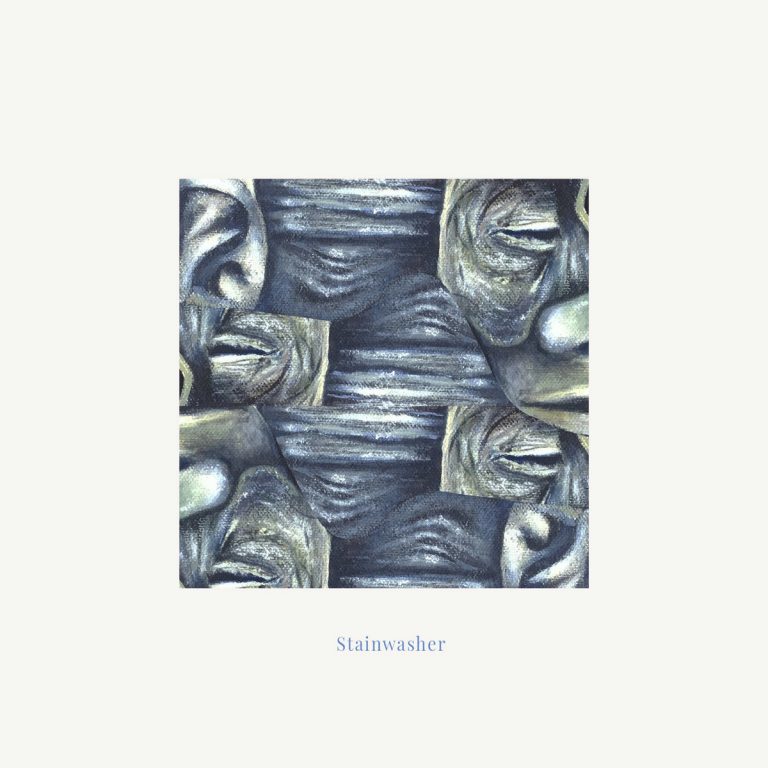Swedish musician Stainwasher is about as mysterious as her music. Photos have her face covered by her long blonde hair, or by her hands stretching out to obscure the camera lens, her features just beyond our line of sight. Similarly, her music is ghostly and out of focus, her soft, tranquilizing voice wrapped in reverb and her words never entirely clear. This keeps listeners at a distance, and consequently her music draws you in more and more, like a siren’s haunting tones that are always just beyond the horizon.
After 2019’s quietly alluring What Did I See EP and a series of singles since then, Stainwasher has returned with a new self-titled three track EP consisting of songs created in 2020. Though it’s barely 10 minutes of music, it’s still as compelling as all the material that has come before. Adding more content to the experimental musician’s catalogue, it doesn’t reveal anything new about Stainwasher, but gives us more reasons as to why we should keep listening to her.
Stainwasher’s music is as much about the elements that make it up as it is about the effect it creates when each part is wrapped up together. A patient, chattering tambourine keeps time like a distant metronome while layered vocals create an ethereal, cathedral-like calm. In between these, guitar notes, synths, and piano add to a song’s mood. On “Pretend” a simple repeated guitar figure reiterates itself, like feet trudging through an uphill muddy path. Stainwasher’s voice – both airy and weighted amidst all the reverb and layering – builds to wash over everything, like a quick drop in temperature or nightfall suddenly appearing.
“nine” is that more spacious and open, but still with a chilly tone, like the first glimpse of sun after a cold autumn night. You might catch a word like “remind” or “don’t” through the haze, but even though the clarity isn’t there lyrically, a tangible sense of sadness is still present. Evoking early Giles Corey with its cavernous acoustic thrum, final track “Again” drops away into a piano piece halfway through. It strips away the more theatrical flair of the previous two songs, but still feels like you’re hearing it sung from a stage in a vast theatre you can’t find the entrance to.
Julianna Barwick is a pretty good go-to in terms of reference points for Stainwasher’s music, though the Swede’s feels much more earthy and homespun, like her music is perhaps channeled through Wickerbird’s short discography and Christina Carter’s more ghostly offerings. Stainwasher’s brief description of herself is perhaps best though: “I create slow, dark dream-pop songs with too much reverb and not enough bass,” she lists with a knowing smirk on her Facebook page, but it’s her other phrase, “Washing away the pain since the 90’s,” that fits best. These songs sound like tracks of deep longing that have been thrown around by so much time and pain that they are now spectral soundtracks that circle around Stainwasher’s memory.
Each track she has released to date has had its own individual draw in, be it the gloomy wash of last year’s single “Chems”, or “Drying”‘s more impressionable widescreen and thunderous scope. Equally, the three tracks on Stainwasher have their own personal magnetism, even if it does feel all too fleeting. Stainwasher gives up no more distance between her and the listener, but it certainly keeps us on the trail of hope to one day find out more about her or just even hear more of her music.

